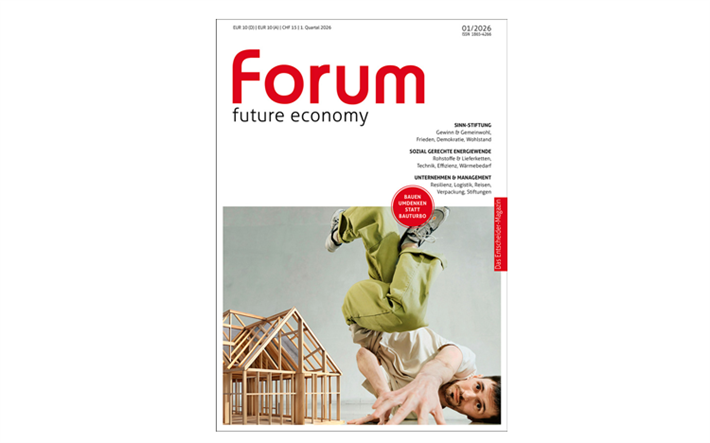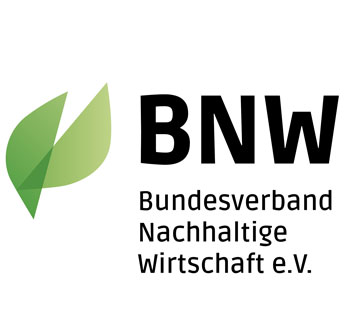Umwelt | Klima, 01.08.2024
Tipping risks from overshooting 1.5°C can be minimized if warming is swiftly reversed
Researchers analyze the risks for four interconnected core climate tipping elements caused by current mitigation levels and future emission scenarios
Current climate policies imply a high risk for tipping of critical Earth system elements, even if temperatures return to below 1.5°C of global warming after a period of overshoot. A new study indicates that these risks can be minimized if warming is swiftly reversed.
 Human-made climate change can lead to a destabilization of large-scale components of the Earth system such as ice sheets, ocean circulation patterns, or global biosphere components, the so-called tipping elements. In their new study published in Nature Communications, researchers from IIASA and the Potsdam Institute for Climate Impact Research (PIK) analyzed the risks for four interconnected core climate tipping elements caused by current mitigation levels and future emission scenarios.
Human-made climate change can lead to a destabilization of large-scale components of the Earth system such as ice sheets, ocean circulation patterns, or global biosphere components, the so-called tipping elements. In their new study published in Nature Communications, researchers from IIASA and the Potsdam Institute for Climate Impact Research (PIK) analyzed the risks for four interconnected core climate tipping elements caused by current mitigation levels and future emission scenarios.The authors determined the tipping risks for destabilizing at least one of four core climate elements as a consequence of overshooting 1.5°C: the Greenland Ice Sheet, the West Antarctic Ice Sheet, the Atlantic Meridional Overturning Circulation (the main ocean current system in the Atlantic Ocean), and the Amazon Rainforest. All four contribute to regulating the stability of the Earth’s climate system. Global warming can trigger abrupt changes in these biophysical systems, leading to irreversible consequences.
The authors’ analysis shows how crucial it is for the state of the planet to adhere to the climate objectives of the Paris Agreement and emphasizes the legacy of our climate (in)action today for centuries to millennia to come.
"Our results show that to effectively limit tipping risks over the coming centuries and beyond, we must achieve and maintain net-zero greenhouse gas emissions. Following current policies this century would commit us to a high tipping risk of 45% by 2300, even if temperatures are brought back to below 1.5°C after a period of overshoot,” says co-lead author Tessa Möller, a researcher in the Integrated Climate Impacts Research Group of the IIASA Energy, Climate, and Environment Program and at PIK.
The authors found that tipping risks by 2300 are substantial for several of the assessed future emission scenarios. Failing to return to below 1.5°C by 2100, despite reaching net-zero greenhouse gas emissions, results in tipping risks of up to 24% by 2300, meaning that in around a quarter of model runs under scenarios that fail to return to below 1.5°C by 2100, at least one of the considered tipping elements has tipped.
Exceeding 2°C global warming strongly increases tipping risks
"We see an increase in tipping risk with every tenth of a degree of overshoot above 1.5°C. If we were to also surpass 2°C of global warming, tipping risks would escalate even more rapidly. This is very concerning as scenarios that follow currently implemented climate policies are estimated to result in about 2.6°C global warming by the end of this century,” says Annika Ernest Högner from PIK, who co-led the study.
"Only a swift warming reversal after overshoot can effectively limit tipping risks. This requires achieving at least net-zero greenhouse gases. Our study underscores that this global mitigation objective, enshrined in Article 4 of the Paris Agreement, is vital for planetary stability,” adds IIASA Integrated Climate Impacts Research Group Leader, Carl Schleussner, one of the study authors.
According to the researchers, the advanced models currently used to study the Earth's systems are not yet able to fully capture the complicated behaviors, feedback loops, and interactions between some of the tipping elements. To address this, the team used a simpler, stylized Earth system model that represents these tipping elements using four connected mathematical equations. By doing so, they also took future stabilizing interactions into account, like the cooling effect of the weakening Atlantic Meridional Overturning Circulation onto the Northern Hemisphere.
"This analysis of tipping point risks adds further support to the conclusion that we are underestimating risks, and need to now recognize that the legally binding objective in the Paris Agreement of holding global warming to well below 2°C, in reality means limiting global warming to 1.5°C. Due to insufficient emission reductions, we run an ever increasing risk of a period of overshooting this temperature limit, which we need to minimize at all costs to reduce dire impacts to people across the world,” concludes PIK Director and study coauthor Johan Rockström.
Reference
Möller, T., Ernest Högner, A., Schleussner, C., Bien, S., Kitzmann, N.H., Lamboll, R.D., Rogelj, J., Donges, J.F., Rockström, J., & Wunderling, N. (2024). Achieving net zero greenhouse gas emissions critical to limit climate tipping risks. Nature Communications DOI: 10.1038/s41467-024-49863-0
About IIASA:
 The International Institute for Applied Systems Analysis (IIASA) is an international scientific institute that conducts research into the critical issues of global environmental, economic, technological, and social change that we face in the twenty-first century. Our findings provide valuable options to policymakers to shape the future of our changing world. IIASA is independent and funded by prestigious research funding agencies in Africa, the Americas, Asia, and Europe. www.iiasa.ac.at
The International Institute for Applied Systems Analysis (IIASA) is an international scientific institute that conducts research into the critical issues of global environmental, economic, technological, and social change that we face in the twenty-first century. Our findings provide valuable options to policymakers to shape the future of our changing world. IIASA is independent and funded by prestigious research funding agencies in Africa, the Americas, Asia, and Europe. www.iiasa.ac.atKontakt: International Institute for Applied Systems Analysis (IIASA)m Ansa Heyl | heyl@iiasa.ac.at | www.iiasa.ac.at

forum future economy
forum Nachhaltig Wirtschaften heißt jetzt forum future economy.
- Mit diesem Schritt markiert der Verlag bewusst eine Zeitenwende – hin zu einer Wirtschaft, die Zukunft schafft, statt nur Probleme zu verwalten.
Kaufen...
Abonnieren...
08
DEZ
2025
DEZ
2025
09
DEZ
2025
DEZ
2025
Club of Rome Salon: Building the City of the Future (in English)
Cities, World Expos, and Stakeholders Driving Sustainability
10178 Berlin
Cities, World Expos, and Stakeholders Driving Sustainability
10178 Berlin
Anzeige

Professionelle Klimabilanz, einfach selbst gemacht

Einfache Klimabilanzierung und glaubhafte Nachhaltigkeitskommunikation gemäß GHG-Protocol
Sport & Freizeit, Reisen
 Es ist Volksfest-Zeit
Es ist Volksfest-ZeitChristoph Quarch erklärt, warum sich Volksfeste hierzulande trotz Inflation und steigender Preise großer Popularität erfreuen
Jetzt auf forum:
Ökologische Stromproduktion aus Fließgewässern
Ab 14.12.2025 gilt der neue Fahrplan der Deutschen Bahn für 2026
Schulen stärken Bildung für nachhaltige Entwicklung
Seit 15 Jahren: faire und umweltbewusste Beschaffung mit dem Kompass Nachhaltigkeit















